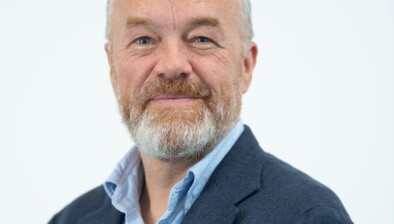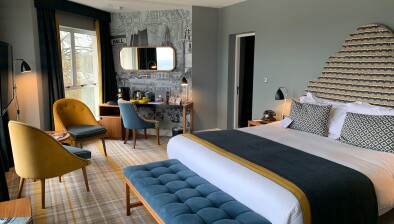RSM: Challenging outlook for Scottish hotels as occupancy and rates fall

Occupancy and room rates dipped slightly for Scotland’s hotel sector in March, with further headwinds expected amidst the increase to employers’ National Insurance contributions from April, according to the RSM Hotels Tracker.
The data, which is compiled and produced by Hotstats and analysed by RSM UK, shows occupancy of Scotland’s hotels remained relatively flat in March year-on-year (73.5% in 2025 compared to 73.6% in 2024), similar to the UK which fell slightly from 73.8% to 73.5% for the same period.
Average daily rates (ADR) of occupied rooms in Scotland saw a small decrease from £106.39 to £104.71 in March year-on-year, with the downward trend seen in the UK and London.
As a result, revenue per available room was down to £76.97 from £78.25 in March year-on-year, with gross operating profits also falling to 22.4% from 25.9%.
Stuart McCallum, partner and head of consumer markets in Scotland at RSM UK, said: “The fall in Scotland’s hotel occupancy in March could be a sign of choppier waters ahead, with the incoming increases to employers’ National Insurance contributions and National Minimum Wage, which will impact already squeezed revenues.
“Businesses have already had to navigate robust wage growth this year, so further cost pressures in April while maintaining a large workforce will be challenging.
“While there were positive signs in the first quarter of the year that consumers were starting to spend again and prioritise travel, the uncertainty surrounding US tariffs may curtail overseas travel, and Scotland’s hotels aren’t completely sheltered. This could spell trouble as the US makes up a large chunk of Scotland’s tourism. Against a backdrop of rising costs, geopolitical headwinds and potential changes in consumer spending, Scottish hoteliers need to broaden out their offering to encourage new overseas markets.”

Stuart McCallum
He added: “However, there have been significant investments announced in Scotland recently, including £5 million on Crieff Hydro to transform its restaurant and bar offering. £350m has also been allocated to grow and decarbonise five UK airports including in Aberdeen and Glasgow.
“Investment in Scotland’s airports aligns with the Scottish Government’s international strategy to ensure Scotland is globally competitive. Despite the lull for the hotel industry, focus on connectivity and quality with greater infrastructure and experiences across Scotland will be key to unlocking different international markets.”
Thomas Pugh, economist at RSM UK, added: “The economy looked like it started to find its feet again in the first quarter of the year.
“Regular wage growth was still hot at 5.9% in February, after an already strong year for household incomes in 2024. What’s more, it looked like persistently strong wage growth was finally starting to feed through into stronger consumer spending.
“Indeed, retail sales volumes rose for three consecutive months in Q1 and the small improvement in the hotel sector in March suggests that stronger spending helped other sectors as well.
“However, the recovery looks like it’s been put on hold as the uncertainty created by US tariffs saw consumer confidence drop four points to -23 in April. Furthermore, inflation will spend most of the year at well over 3%. That increases the chances that consumers will remain cautious, choosing to keep saving instead of spending.”





